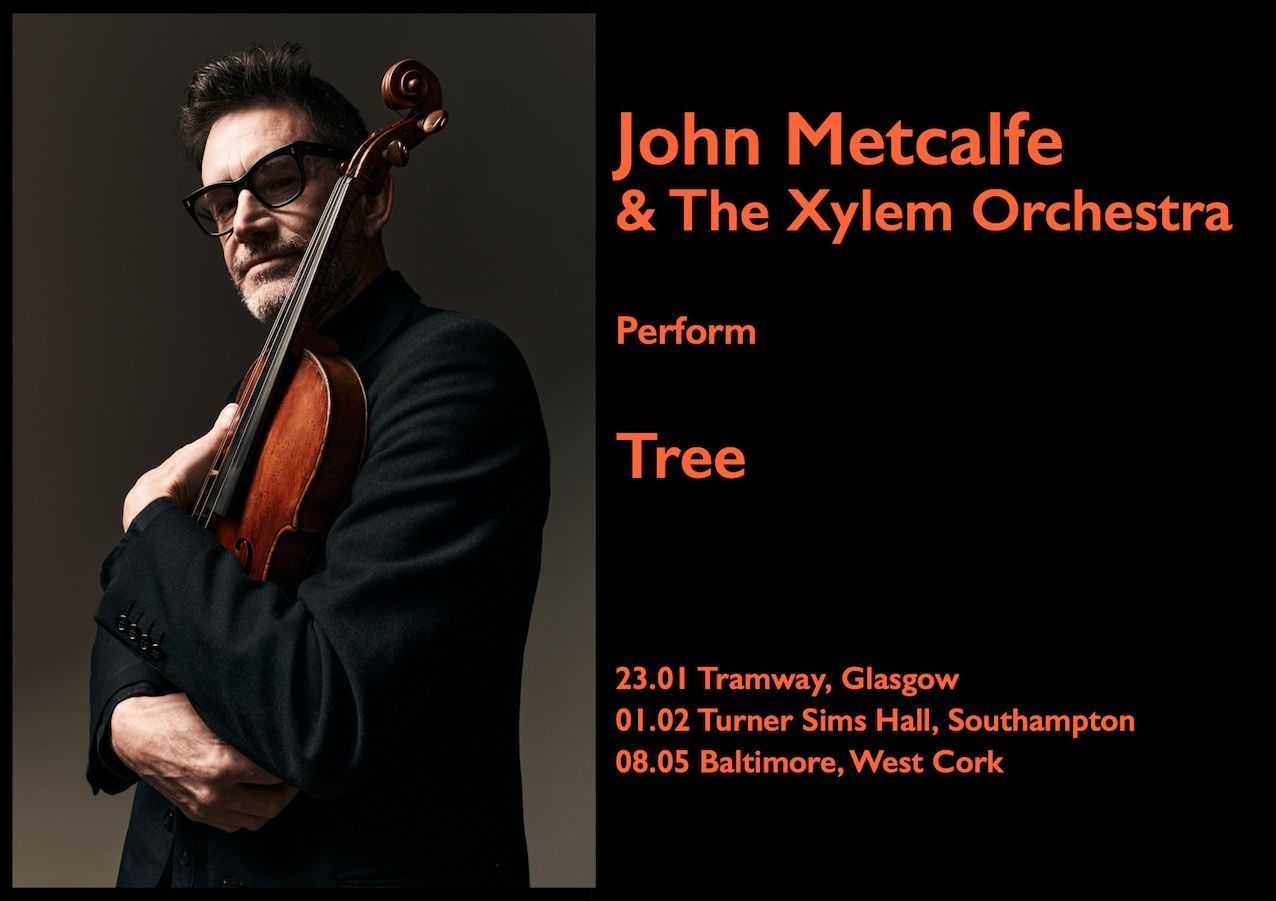


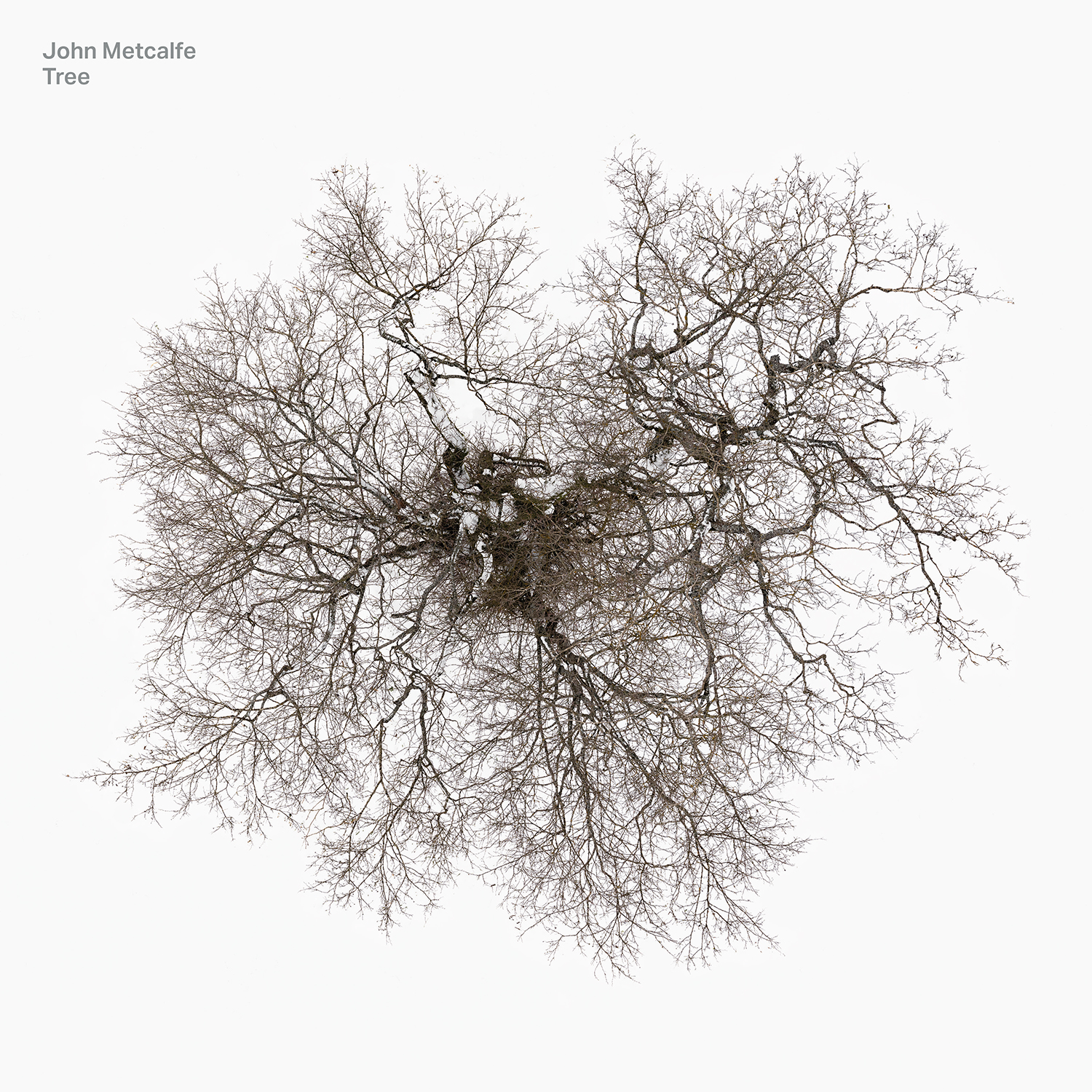
Recorded at the legendary Abbey Road studios, New Zealand-born John Metcalfe’s sumptuous new album ‘Tree’ explores and celebrates our extraordinary relationship with trees. It is about their structure, energy, and beauty but primarily their power to excite and move us. Based around different periods of the day and night the pieces reflect the ever-shifting interplay of light, colour and sound. Birdsong plays an important part as it intertwines with the music trees make as they respond to the effects of the weather. The album addresses the intense and mystifying effect trees have on us and our sense of a relationship with their physicality, their essence, and their importance to the future of our planet.
We begin at the start of a cycle, tracking the progress of light through a day into a night. We are in a very special place. Quivering violins rise and build, and we hear the energy of tissue carrying water from roots to stems to leaves. Then we catch magical explosions of birdsong, sense fluttering movement under starlight, and feel the burrowing resonances of roots, as lower strings, oboe and bassoon take instruments made from natural materials back into the earth – and take us with them.
John Metcalfe – the Durutti Column viola-playing master who for years has been a composer and arranger for the likes of U2, Coldplay, Peter Gabriel and Blur, as well as co-founder with Tony Wilson of the Factory Classical label – had been composing music spontaneously, instinctively, when the idea of Tree arrived. An album that immerses the listener in twenty-four hours of the life of nature’s most majestic creations, it came from a desire in John to write at scale – perhaps a natural reaction for a composer writing out of the silences and solitude of our recent pandemic years. “The pieces I was writing were big and trying to be bigger, so I knew they had to be to do with something – and then I thought about one of the most profound experiences of my life.”
This was seeing Tāne Mahuta as an adult, the largest known living kauri tree in the world. Set in an ancient subtropical rainforest on the North Island of Aoreatoa/New Zealand, John had spent his early childhood living in that part of the world, after his British father had "escaped there as a ten-pound Pom", escaping a job motorbiking for the post office in the pea-soupers of London in the wave of post-war immigration. "I have very happy memories of being a seven-year-old there, and, to me, New Zealand always retained a kind of a golden untouchable quality to it.”
Having emigrated to England as a child, he went back to New Zealand when he was 26, with his wife. “And we thought we’d tick something off the tourist list, and I thought we're going to see trees, which is great – but we weren’t prepared for what happened.”
They both cried when they found Tãne Mahuta, still amazed at the reaction he had, which "isn’t normal" for him. “It was really weird – not spooky, but as an atheist, it was the closest I’ve ever got to a spiritual moment...there was something extraordinary about the atmosphere in the forest and the size of this tree, and the sense that it had been there a long time. It was about the protection it gave, and the sense of connection we had with that protection.”
Written for live players and recorded in Abbey Road Studios to convey that feeling, and that human connection at scale, Tree imagines what it would be like to be sat completely still under a tree that you love, being alive to the ever-shifting interplay of light, colour, weather and sound. Its eight tracks are long compositions, beginning with ‘Xylem’, named after the vascular tissue in plants which conducts water, dissolves nutrients, and helps to form stems: the material, John adds, "that gives a tree its strength". A lower melody emerges in the track and then it builds, making the listener realise all this wakeful activity has a deeper, earthier purpose.
John talks about how Peter Wohlleben’s 2015 book, The Hidden Life of Trees, was a huge influence on him as he wrote. “Trees do things very, very slowly. They have electrical impulses, but they move at something like a third of an inch a minute, so it's almost like having a nervous system. And trees are transmitting messages to each other through their networks of mycorrhizal fungi that help them communicate, so slowly. It’s so caring and fascinating.”
‘Canopy’ follows, full of gorgeous conversations between chirruping woodwind and staccato strings. It’s John's love of nature "quantised", he smiles, full of his love of Kraftwerk, Steve Reich and minimalism, channelled in an alternative dawn chorus. ‘Root to Leaf’ returns to the slow growth of late morning while ‘Stasis’ “is post-lunch – say around two-thirty", John laughs. "When I made it, I was imagining being in the middle of a beautiful summer somewhere, under a tree at the top of the hill, where you have a really big view that goes on forever.”
Proceeding calmly and beautifully, plucked violins and violas add moments of shimmering, ambient colour. “Everything is hazy, and very still, but there’s the occasional crack of a twig or something falling, and there’s a moment of real focus in the experience after the gravity of the morning and the dawn," John explains. "The fear of the changing of the light that will come later on, but for now, this is contemplation, and it’s beautiful.”
Then comes the track named after Tāne Mahuta, summoning up the folkloric power of ancient forests through an emotional crescendo in emotion and sound. “It’s the kitchen sink centre of the record," John laughs. "Everything is in there – brass, wind, an organ, and electronics as well – but still it doesn't come close. It's my little attempt to do something to explain my relationship with trees, which I can't ever possibly do." He's never seen any art, photographs, or even drone footage that conveys what a tree "actually is" when you're standing next to one, he says. "So, I just thought, well, I have to go down the loud route and take it as loud and big as I can go!”
The gorgeous solemnity of ‘Dusk’ (one of John’s favourite pieces on the album, where a chord progression “keeps going and keeps going then plateaus”) then breaks into ‘Night’. This is club music for nature, branches moving their limbs under the moonlight, playfulness and impishness sparkling under a cloak of darkness. Then ‘Sunrise’ returns, at first imperially then somewhat humbly, making us reflect on the journey we’ve taken. We’ve experienced sublimity in this approximation of a day in a life, but also a sense of our humanity, too.
Tree isn’t just about Tãne Mahuta, John insists. “It could be about any tree – they’re all very magical.” The one that helped him as he wrote is the mature sycamore at the bottom of his garden, which he walks past every day to go to the shed where he works. “I look at it every single day when I walk down the path, as I sweep up the sycamore pods, as I watch the micro changes through the seasons, throughout the course of the year, and I always find it extraordinary.”
He wonders whether his connection with trees might be about getting older, too; he knows for certain that it's about a need for people to connect with things still growing and flowering around them that have been there for tens, hundreds and sometimes thousands of years.
This record isn’t a political statement, he says, but it's clear to him that as science progresses, and as climate breakdown progresses, people are trying to find deeper ways to understand and cherish nature. "It’s about the music that people are trying to create to connect with things that are huge and beautiful and inexplicable around them."
Tree is John's beautiful, emotional attempt. "My album's about describing our relationship with something as everyday and extraordinary as a tree, and how it can be an incredibly important part of who we are.” Jude Rogers
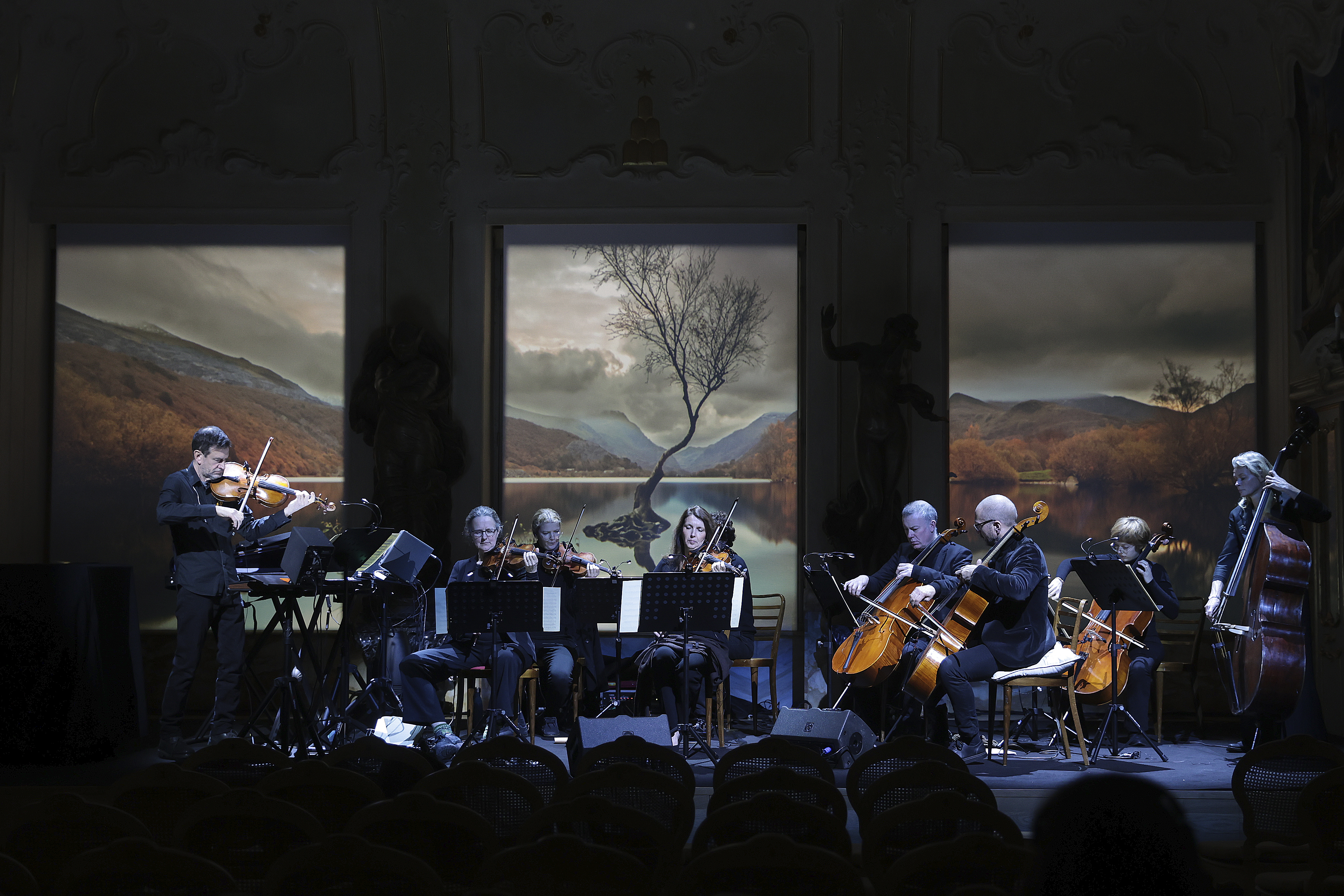
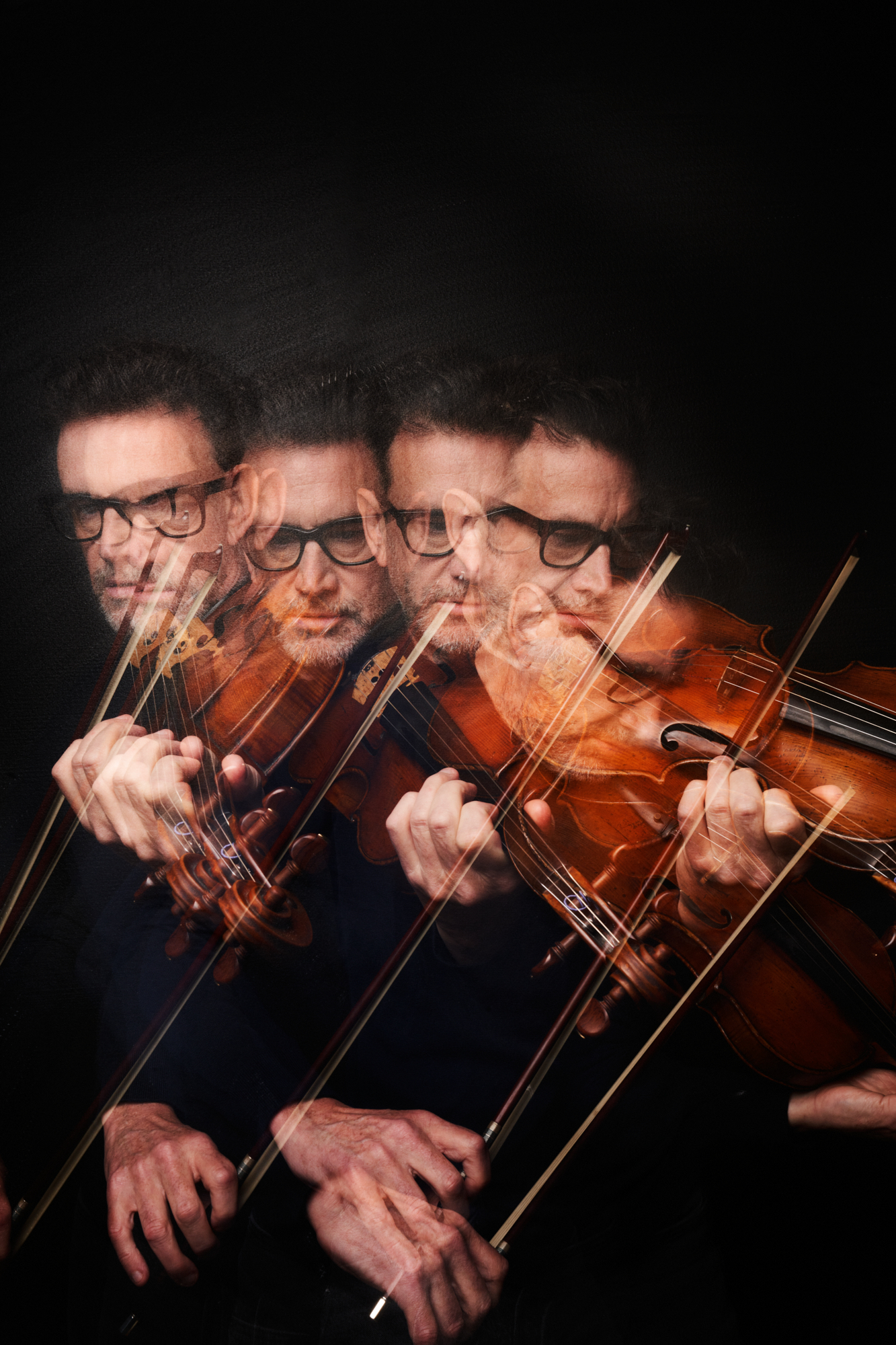
Metcalfe spent over 3 years collaborating with Peter Gabriel on 2 albums of orchestral arrangements of Gabriel’s best known material as well as re-imaginations of other major artist’s work on the ‘Scratch My Back’ release such as David Bowie’s ‘Heroes’ and Radiohead’s ‘Street Spirit’. He was Gabriel’s musical director for all subsequent touring. He has also created and conducted the orchestral arrangements for Gabriel’s new album ‘i/o’.
A classically trained violist he has toured and recorded with his own Duke String Quartet in venues such as the Lincoln Centre, Wigmore Hall and Concertgebouw. With his band he has performed at major festivals and released solo albums on labels such as Real World. Metcalfe has composed and MD’d for permanent shows such as ‘Giudizio Universale’ in Rome and also for tv and radio. Until Covid struck John was composer and musical director for a brand new Cirque Du Soleil show due to open in Berlin. More recently Metcalfe has composed music for an Italian circus production of ‘Alice In Wonderland’ working with Cirque du Soleil directors Lulu Haelbeck and Simone Ferrari, worked on U2’s ‘Songs Of Surrender and created an orchestral show of Thin Lizzy’s music with the RTE Orchestra in Dublin. He still works as a session violist, playing on recordings by the likes of Sam Smith and London Grammar. Metcalfe has always been surrounded by music. As a child, he would listen to his father sing opera, before a love of Kraftwerk and Joy Division led to a stint as a drummer in a high school band. But it was a move to Manchester that really accelerated his development as an artist, and led to him finding his true calling. Joining cult band The Durutti Column, then signed to legendary label Factory Records, brought him into the orbit of Tony Wilson and the Haçienda, formative events that would help foster his renegade spirit.Unimpressed with the strictures demanded by the classical recording industry, Metcalfe persuaded Wilson to launch the ground-breaking Factory Classical Label, aimed at unearthing exciting – and unconventional – new British talent. It was here that Metcalfe found a home, and the group that would come to define his musical career; the Duke Quartet. For nearly 30 years, they’ve existed at the vanguard of contemporary British music, innovating and delighting in equal measure.
Working with world-renowned artists across the entire cultural spectrum, from pop, dance, film, TV, and theatre, Metcalfe honed his composing, arranging and producing skills; he’s now one of the world's most sought-after arrangers. Since his work on Morrissey's no.1 solo album Viva Hate, he has worked for artists such as Coldplay, Blur, George Michael and Tom Jones. After hearing his arrangement of 'Angel in The Morning' for the 'Friends' soundtrack, the Pretender's Chrissie Hynde asked John to arrange some of her most famous songs for the 'Isle of View' album featuring the Duke Quartet. In 2017 he arranged and conducted 'Different Corner' for the Brit Award's tribute to the late George Michael.
Metcalfe was the arranger, musical director and co-producer of Peter Gabriel's orchestral albums, 'Scratch My Back' and 'New Blood' being closely involved with Gabriel in re-interpreting covers of major artists ranging from David Bowie to Paul Simon using only orchestral instruments. Mojo magazine called it "A profound re-imagining made manifest in an orchestral soundworld as rich and thrilling as ever recorded at Air, the studio founded by George Martin". Touring was worldwide visiting renown venues such as Radio City in New York and the Hollywood Bowl. Most recently he conducted and arranged the orchestra for U2’s BBC special, recorded at the legendary Abbey Road studios.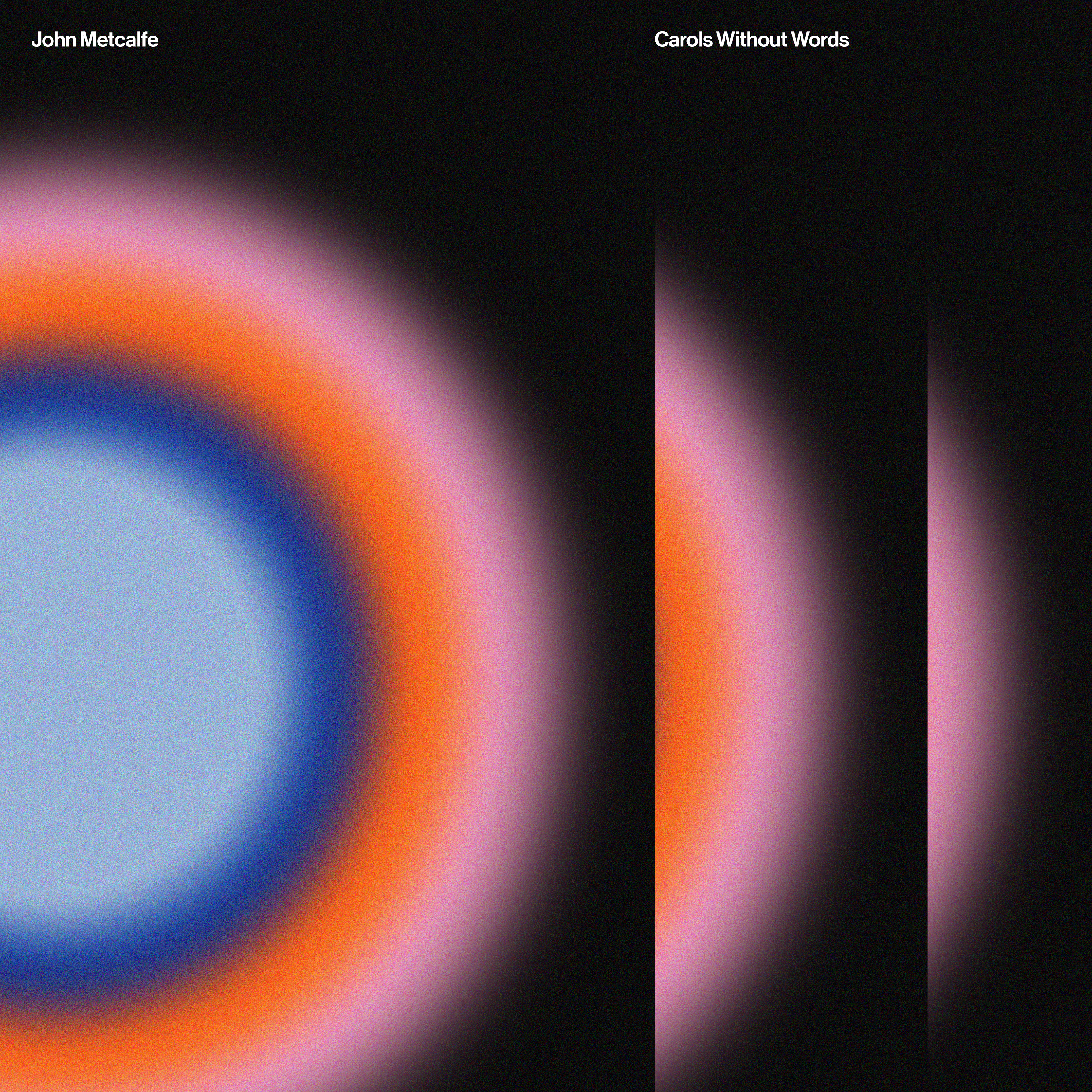
Apple Music - "John Metcalfe's jaw-dropping achievments as arranger, composer, and producer include collaborations with Andrea Bocelli, Blur, Peter Gabriel and U2. 'Carols Without Words' turns the New Zealander's gilt-edged experience to the advantage of all those who yearn for a classy alternative to the usual choral renditions of seasonal favourites. Fresh life is breathed into 10 time-honoured tunes, exquisitely so with his sumptuos symphonic setting of the old German hymn 'Lo, How a Rose E'er Blooming', meditattive arrangement of 'Silent Night'and a sophisticated take on 'Gaudete'. Metcalfe pays homage to the 'Adagio' from Corelli's 'Christmas Concerto', played straight except for a gloriously souped-up version of its central section, converts 'O Come, O Come Emmanuel' into a showpiece for strings and creates an instant Christmas classic with his shimmering 'Carol of the Bells."
With lilting instrumental melodies and ambient electronica, 'Carols Without Words' is a modern reimagining of traditional festive classics, created by producer-arranger John Metcalfe. Featuring much-loved favourites such as 'Silent Night' and 'God Rest Ye Merry Gentlemen' through to the more recently popularised 'Carol of the Bells' – immortalised in the 'Home Alone' soundtrack – the collection spans centuries and styles – each piece bearing the hallmark of Metcalfe's distinctive orchestration.
A spiky melody cuts through the repeated phrases. It grows in stature as the string ensemble joins the fray; the motif passes from violin to cello, twisting into a kaleidoscopic form. The waltz-like theme, despite its colourful development, is instantly recognisable as the Ukrainian folk song used in 'Carol of the Bells', the music that soundtracks Kevin McCallister's plans to defend his house. While John Williams's arrangement for 1990's 'Home Alone' features choristers and punchy brass, John Metcalfe's 2022 version gives the main action to the strings. That's not surprising: the composer is a viola player with decades of experience in string quartets and arranging string parts (and others) for bands including Blur, U2, Peter Gabriel and Coldplay. 'Carol of the Bells' is the opening track to Metcalfe's new album 'Carols Without Words', a finely crafted collection of traditional festive music – with a 21st-century touch. Metcalfe listened to dozens of carols before settling on a shortlist that spans the centuries. 'It was a little bit like a luthier choosing a piece of wood,' he says, 'I wanted a range of reflective, happy, sad and celebratory music – the way that we might feel during a holiday. Each carol has its own merit but together they offer variety.' And, as the title suggests, there are no singers involved – all arrangements are instrumental, with scoring ranging from oboe to electronics. Strings often take centre stage ('it's the core of my sound' explains Metcalfe), but arrangements such as that of 'Coventry Carol' are more ambient – the influence of artists such as Brian Eno can be heard. 'I chose carols that lent themselves to a modern treatment,' considers Metcalfe, 'the main melodies of most traditional pieces are very short, which in some ways gave me a lot of freedom'. In 'God Rest Ye Merry Gentlemen', the first line of the carol is used as a building block for a mesmeric minimalist-electro piece, while 'O Come, O Come, Emmanuel' evolves from a haunting solo to a racing, repeated structure. Although the tune remains broadly identifiable, these are pieces of music in their own right. The echo of the words remain – but these are more than simple cover songs. 'It would be a nice challenge in places to sing along to them,' agrees Metcalfe. The focus of 'Carols Without Words' is the blend of carefully woven textures and colourful effects. Metcalfe was keen that the music should not become a Christmas pastiche. To that end, there are no sleigh bells here: 'I didn't want this album to be too spangly,' he explains, 'there's a little bit of tambourine, but otherwise I've treated the melodies as I would any other arrangement.' This has allowed older, universally known carols such as 'It Came Upon A Midnight Clear' to be transformed through lush strings and shifting harmonies. There is a poignancy to 'Silent Night'; a sparse uncluttered arrangement in which the main tune breathes and expands – an unusual, meditative moment within the glitter of the holidays. 'Christmas inspires lots of different emotions – it can be a very painful time for some people,' says Metcalfe, 'there are a lot of memories caught up with these carols that go right back to childhood. I didn't want to ignore the reality that it's not always a fun time.' The woodwind solos throughout 'In the Bleak Midwinter' also bring a change of pace; unfussy harmonic twists bring a freshness to the well-worn melodies. 'The early modern carols were really interesting to work with,' says Metcalfe, 'in some ways they were easier to shape.' An upbeat version of 16th-century carol 'Gaudete' – with a virtuosic violin solo played by Britten Sinfonia leader Thomas Gould – concludes the 10-track programme. Thinking of carols as individual pieces, separate from their seasonal setting, is useful for arrangers working on them during the summer – as was the case for Metcalfe. But the composer is used to December in sun, having grown up in New Zealand. Reimagining carols without lyrics, which often reference trudging through the snow (such as 'In the Bleak Midwinter'), makes them more accessible. However, it's not only Antipodeans who might appreciate the songs without words – carols are played and enjoyed in all sorts of secular settings where the lyrics are not relevant. 'The focus here is the melody,' says Metcalfe.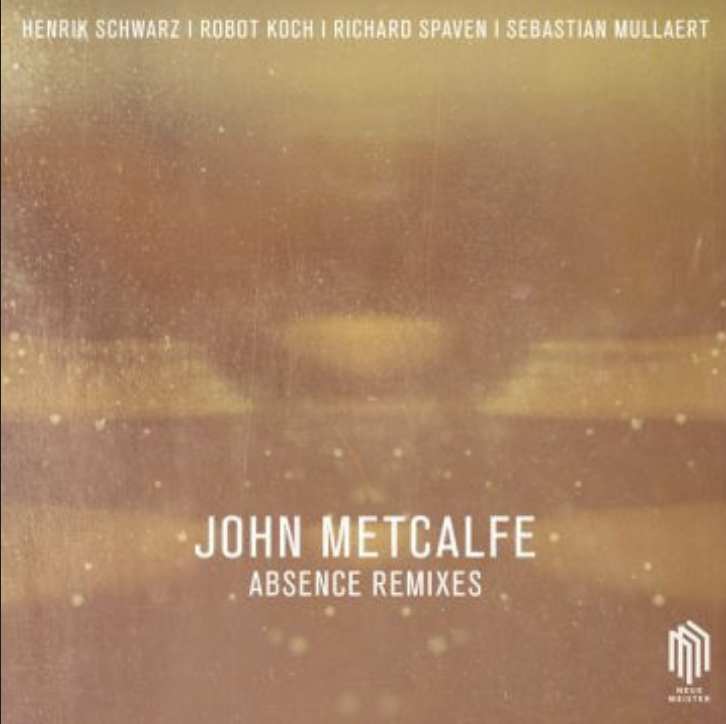
In keeping with a spirit of versatility that he has become known for, Metcalfe has invited four contemporary musicians to remix tracks of his 2018 oeuvre ‘Absence’ for a new album, Absence Remixes. Absence Remixes contains tracks by musicians Robot Koch, Sebastian Mullaert, Richard Spaven and Henrik Schwarz as well as one by Metcalfe himself.
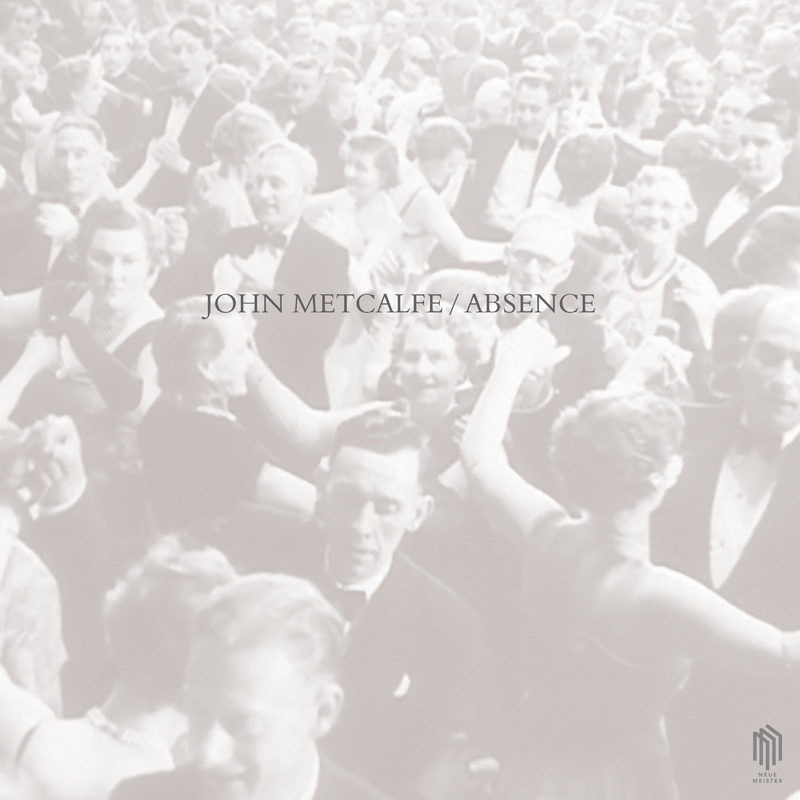
Drowned In Sound - "Having released several solo albums in the 2000's, his 2015 record Appearance Of Colour - a more traditional set of songs - marked a new chapter in his career, and further cemented his reputation of one of the UK's best, most consistently brilliant artists. His new album Absence is no different, a stunning rumination on death and what it leaves behind, and how people try to make sense of loss."
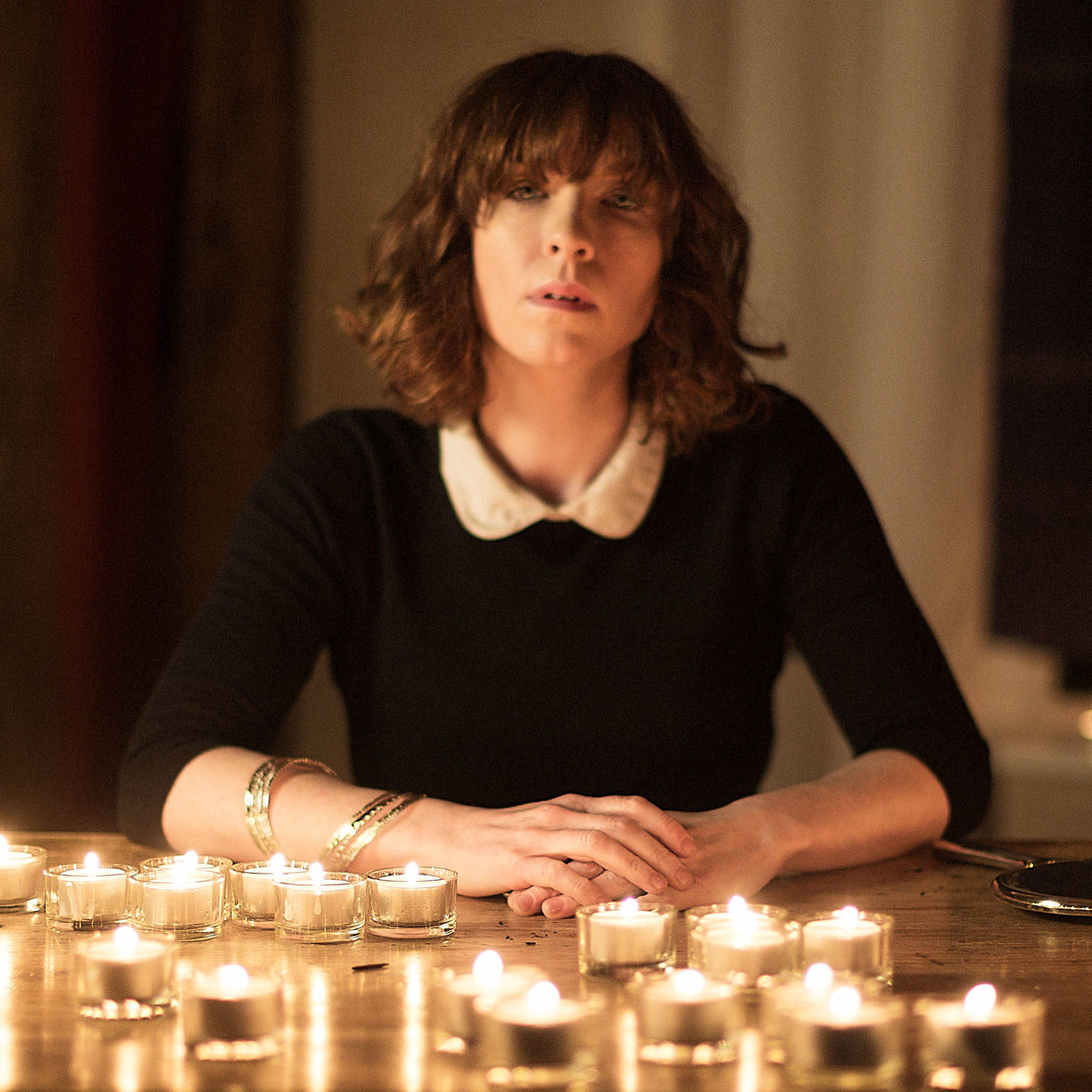
The four track Wrapped EP features the soulful voice of Rosie Doonan (Birdy, Peter Gabriel) on the title track. Although largely known for his instrumental compositions, when Metcalfe met Rosie on a Peter Gabriel tour, he was unable to resist writing some material for her. “I clearly remember the first time I heard Rosie sing,” explains John. “I was with some fairly hardened touring musicians who aren’t easily impressed and we went round the front to listen to Rosie sing a couple of songs before the main Gabriel show. We were all transfixed. I usually write instrumental music but this seemed like the time to change that and it seemed crazy not to collaborate with her.“
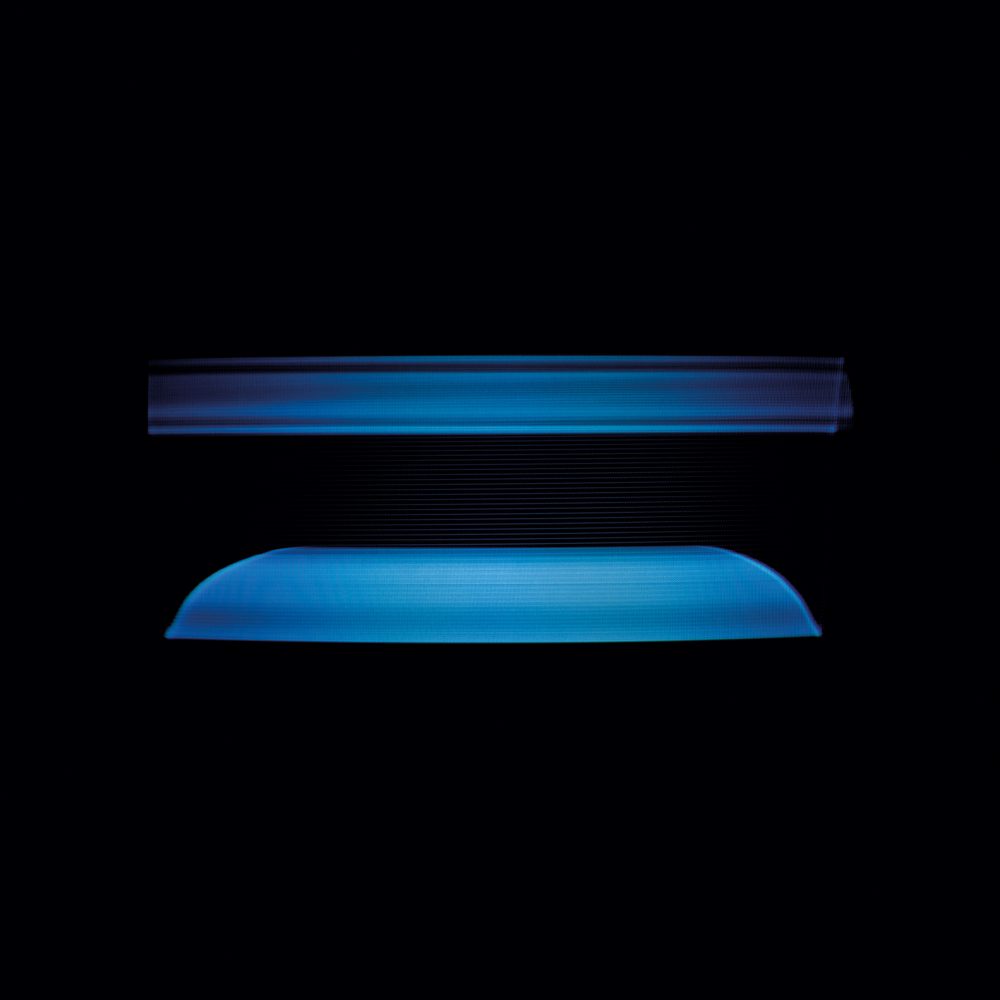
Clash Music - "..a euphoric outpouring after the ebb and flow of frenetic beats and claustrophobic ambient washes that have gone before, is one of several moments of magic on this increasingly affecting record."
Uncut - 8/10
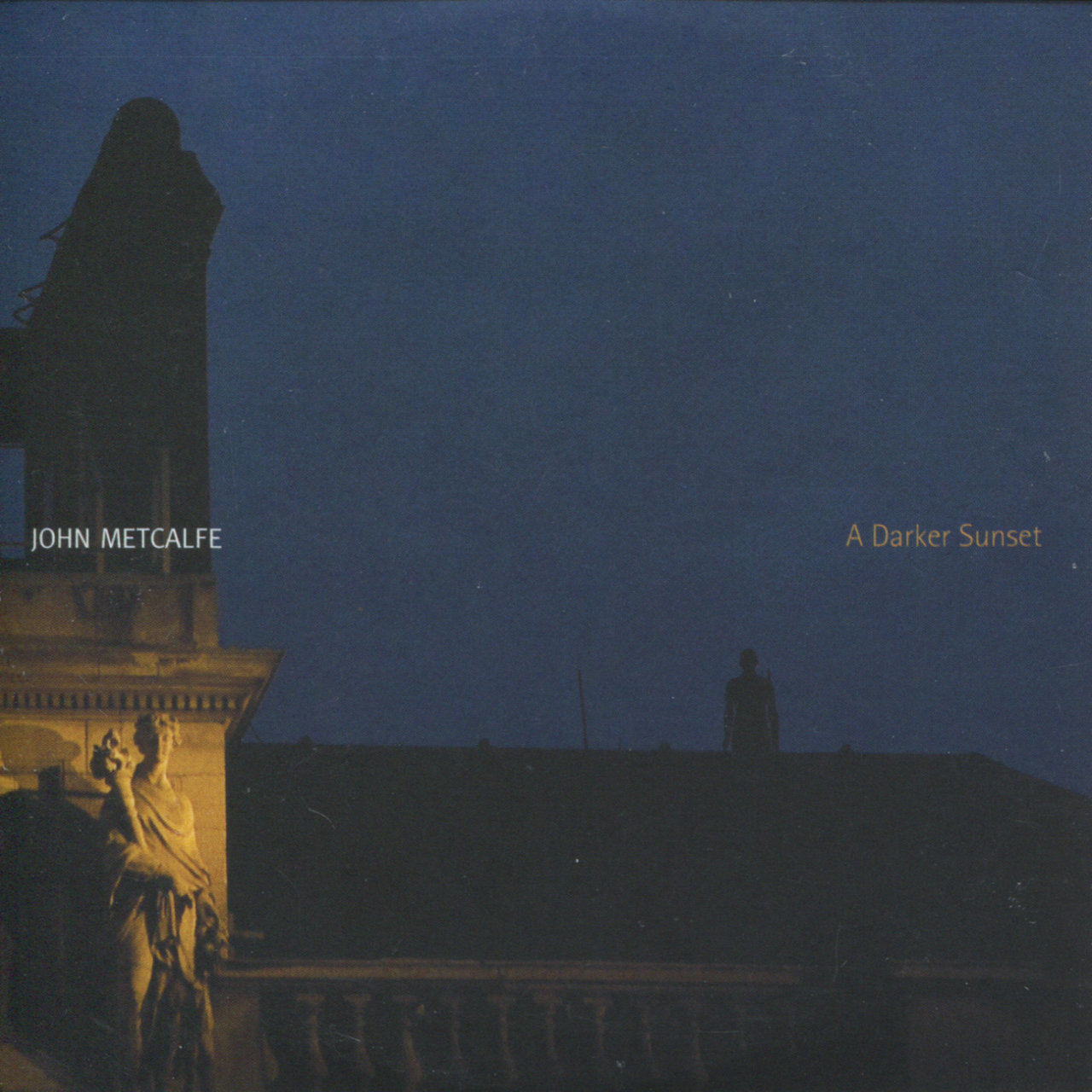
Eamon Forde - The Word - "... a woozy wedding of classical, electronica and ambient ... a gloriously schizophrenic collection, one minute lazily teasing out notes amid floaty atmospherics then jack-knifing into a 60's spy thriller set piece, heavy on brass and scratching ... A wonderful wrong-footing of a music business built on the selling of vocalists as personalities."
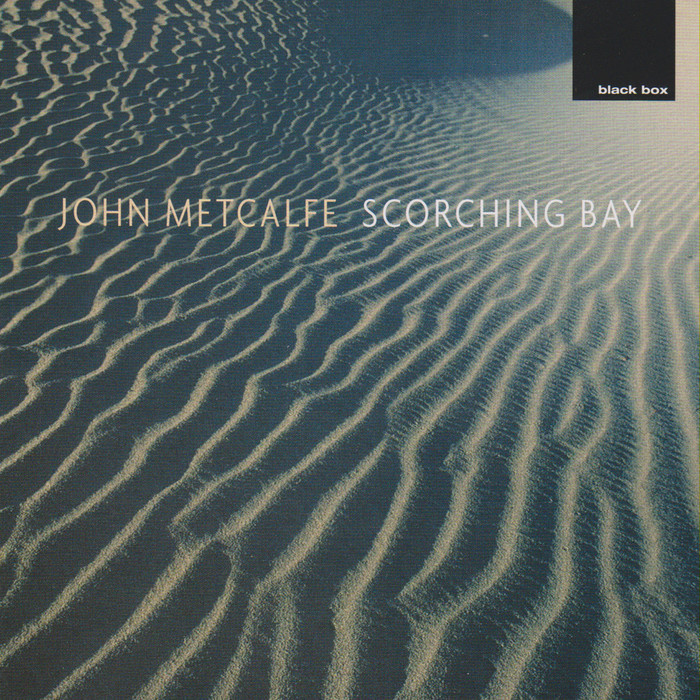
John L. Walters - The Guardian Friday Review - "John Metcalfe's strings and electronics are impeccable."John Metcalfe's Scorching Bay is an example of what you might call the "logical tendency" - music constructed thoughtfully and carefully from considerations of sound and music, with little to dilute it ... this album is the expression of Metcalfe's compositional personality, which splashes happily across several streams of current music-making. All of this is entirely appropriate for someone who trained at the RNCM in Manchester while playing in the Durutti Column and kick-starting the influential Factory Classical Label."
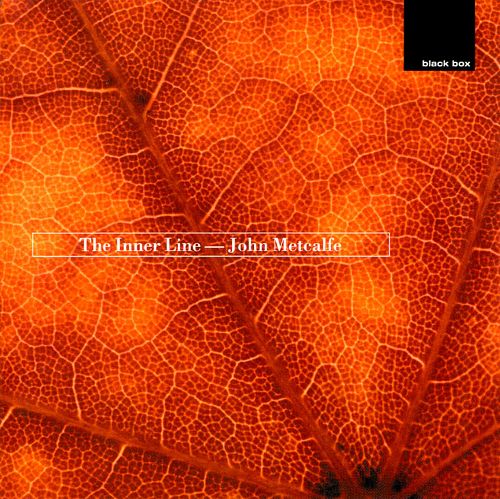
Billboard - "... a solo debut that crosses all manner of boundaries. Melding avant-pop and electronica, film music and contemporary classical, The Inner Line puts forth a set of highly melodic, sonically compelling songs without words."